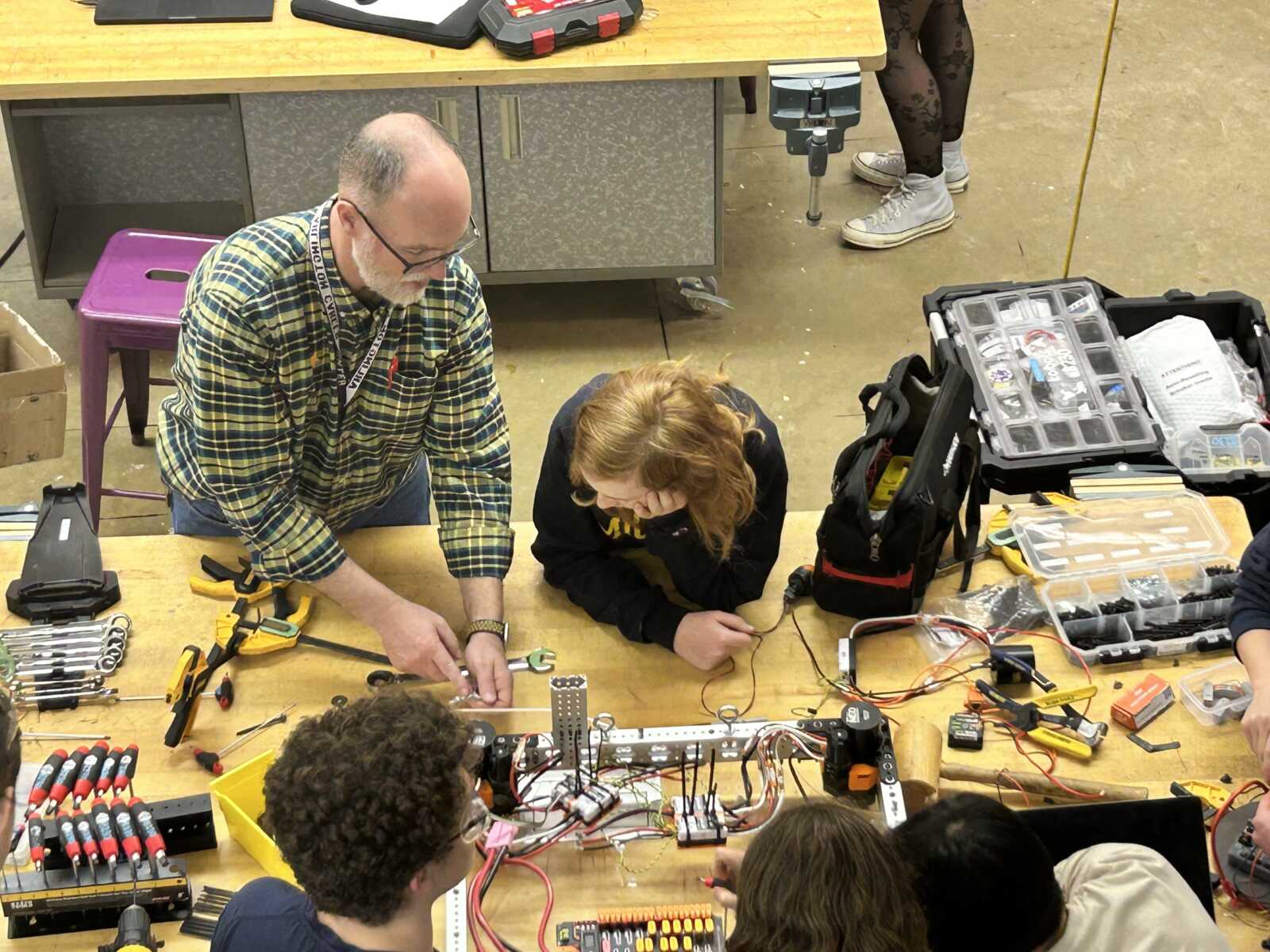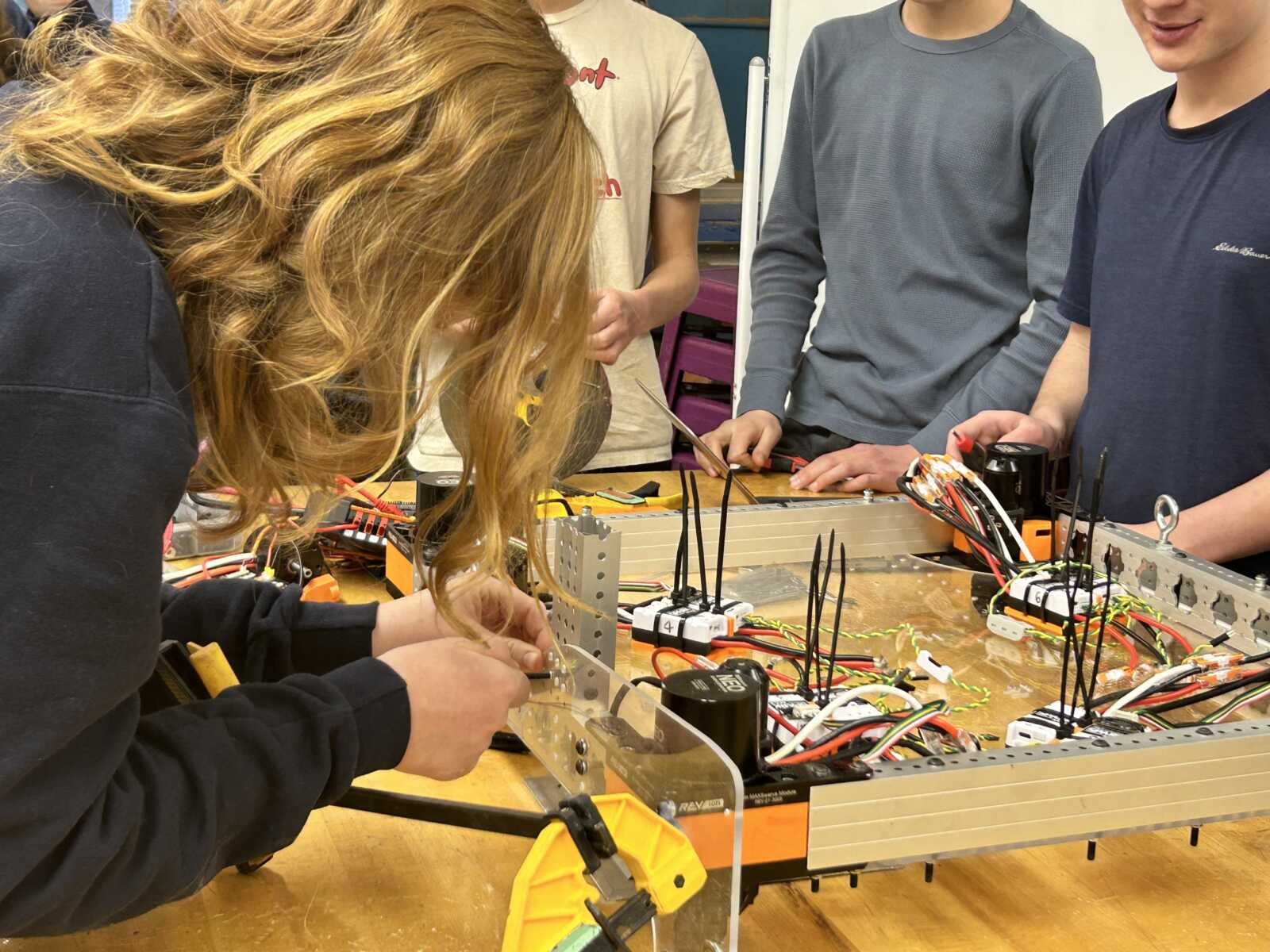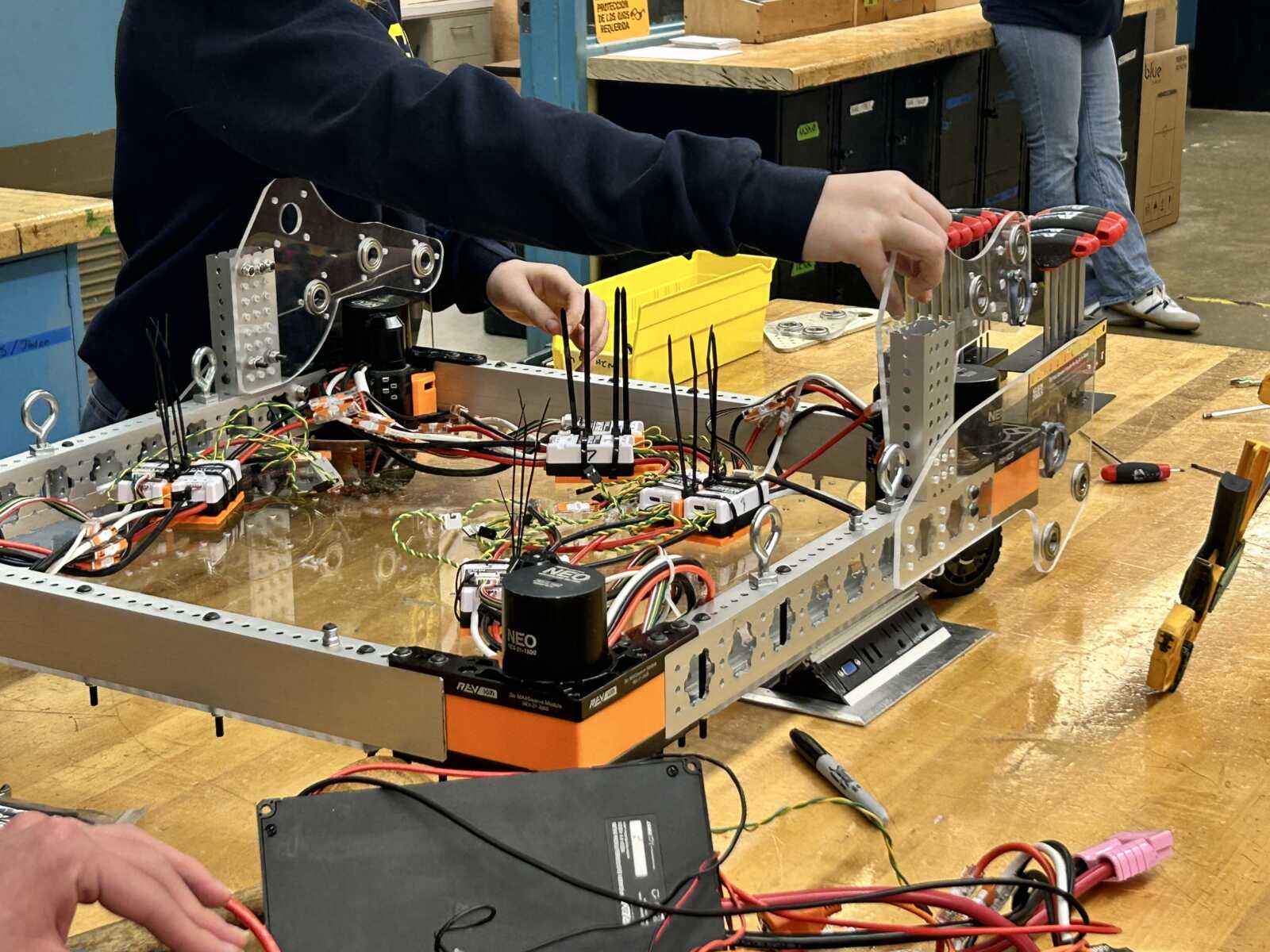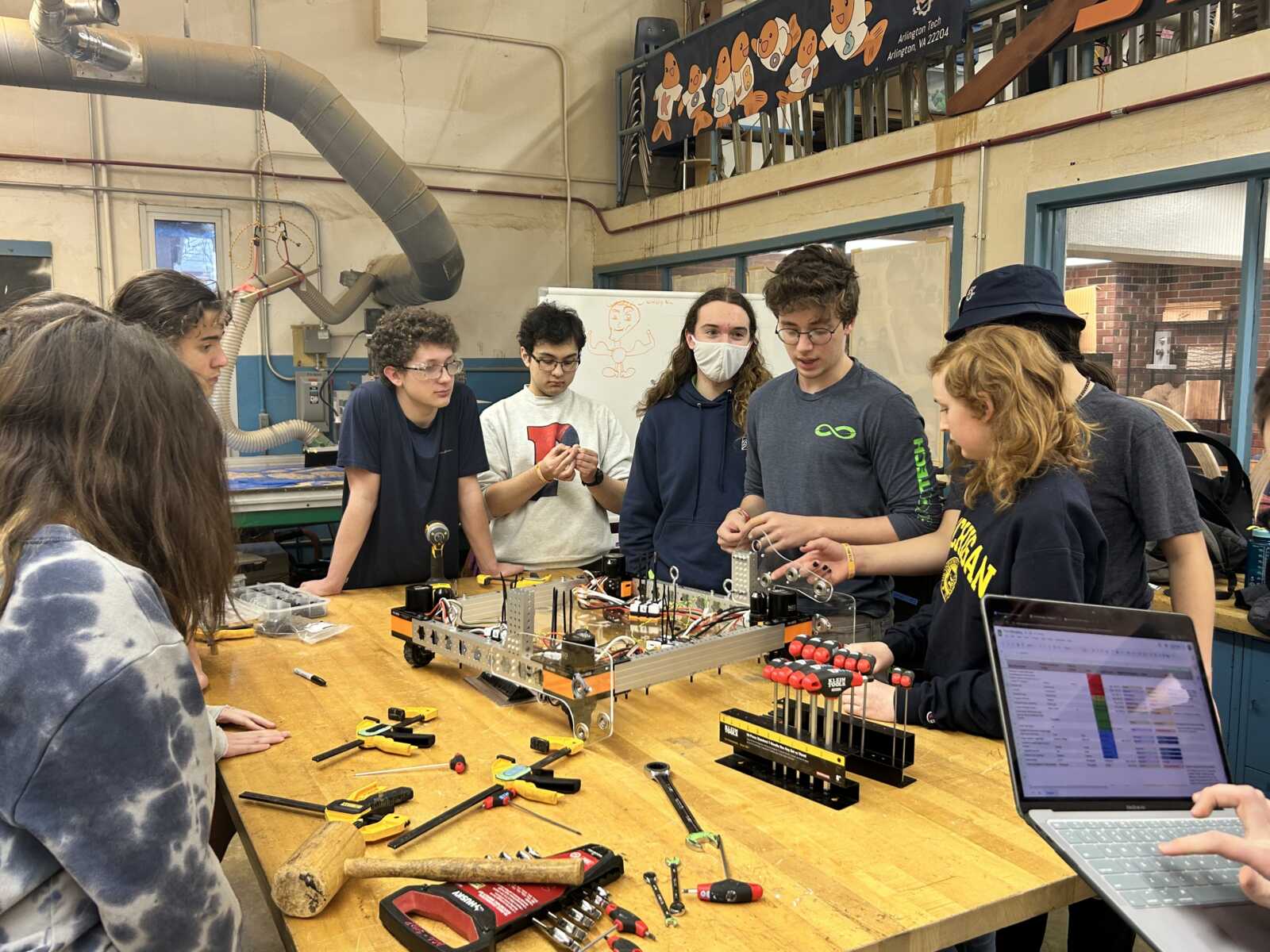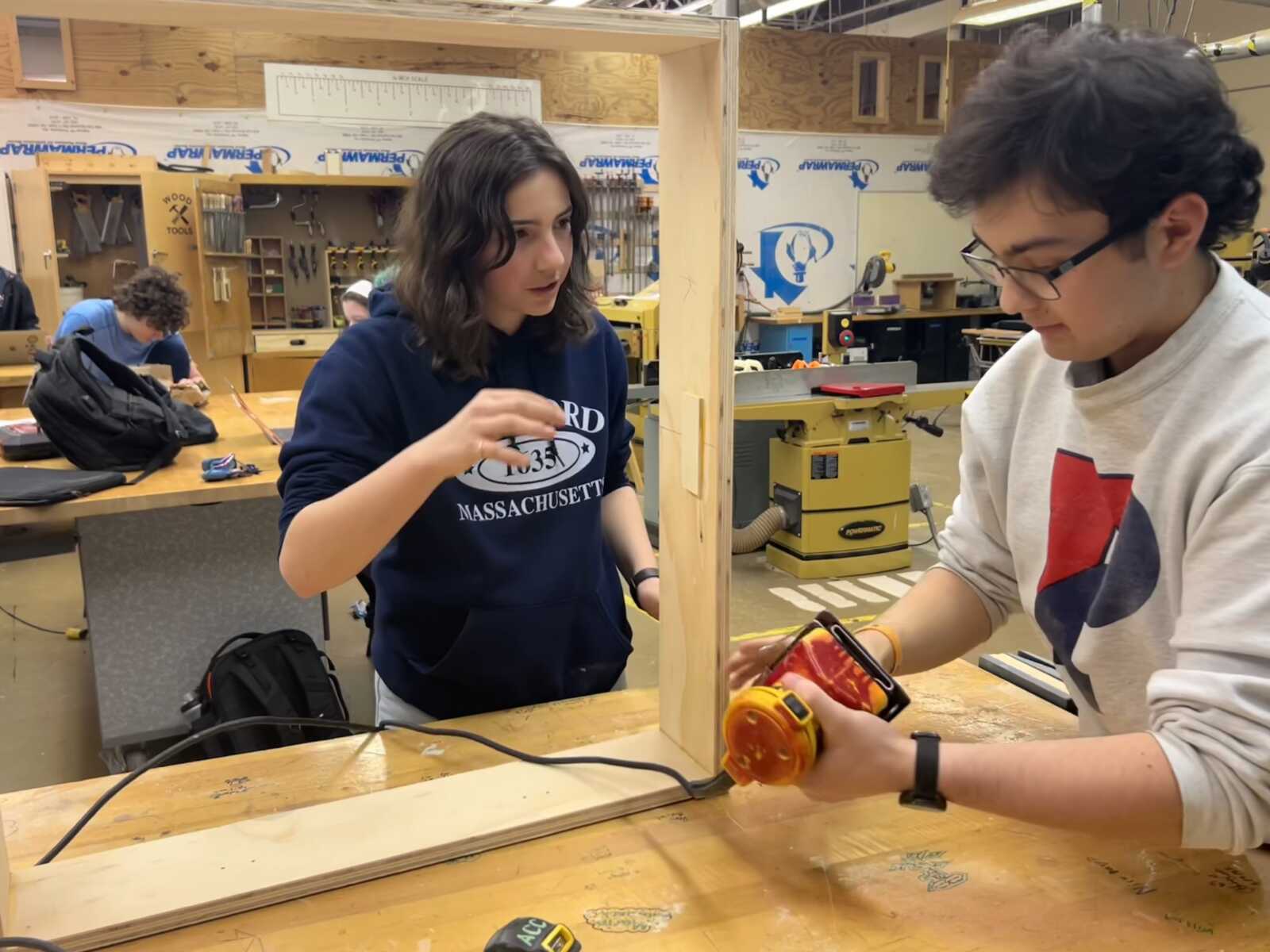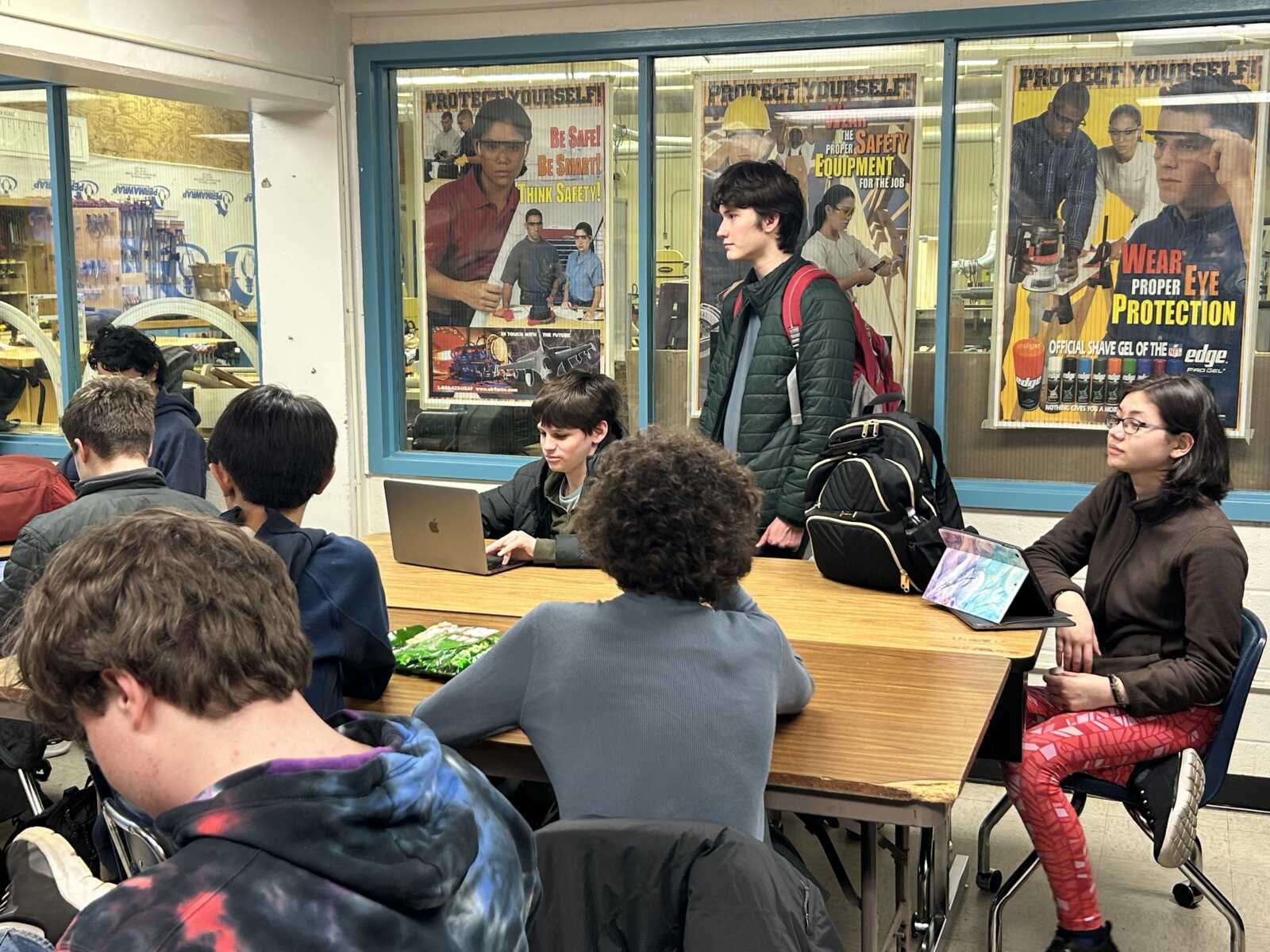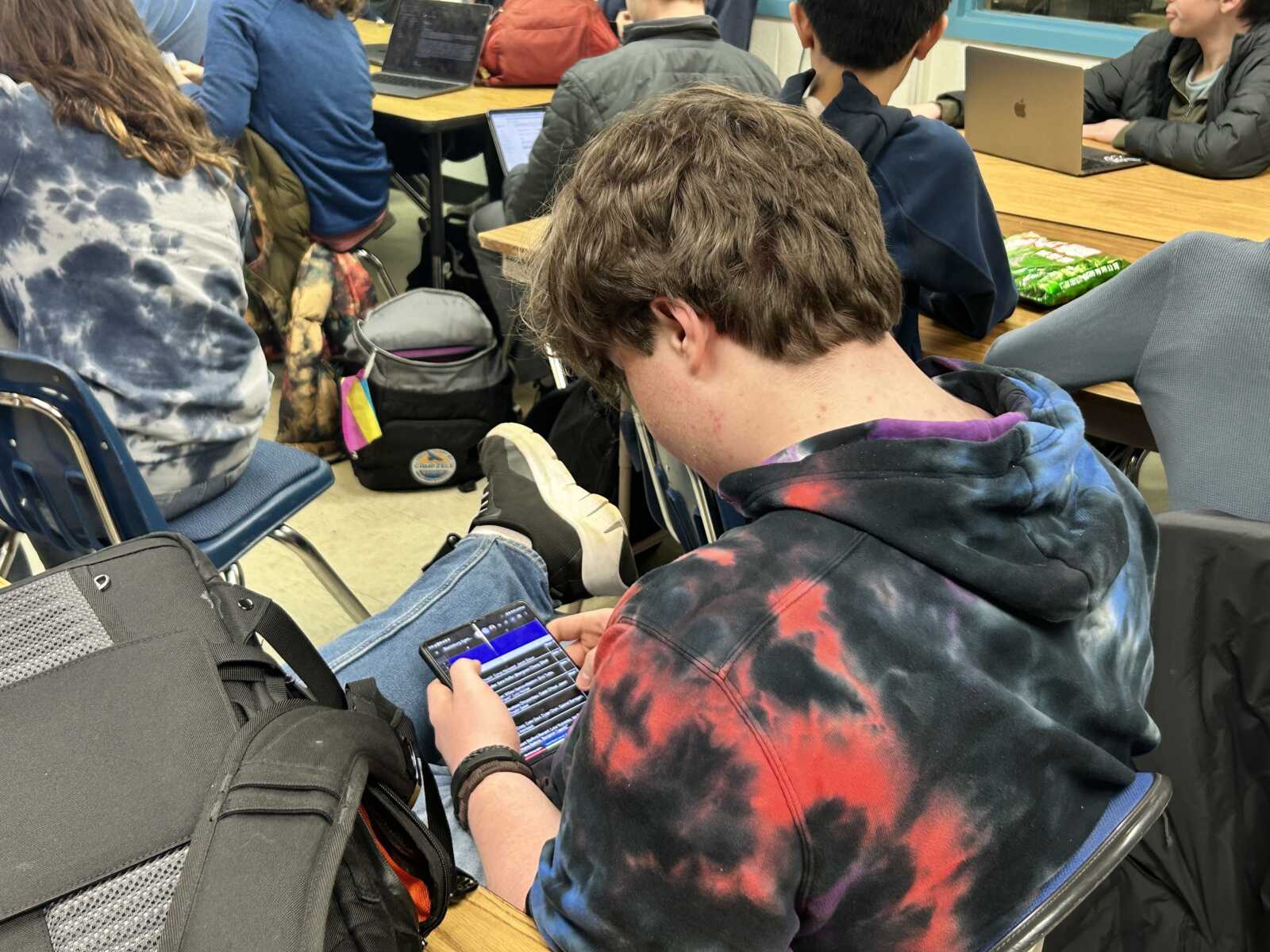One meeting down and two more to go before recommendations could emerge for a new name to adorn the forthcoming Arlington Career Center building.
Arlington Public Schools last month created a naming committee to discuss potential names for the new building, which will house the Arlington Career Center and the handful of programs within it, including Arlington Tech. As the committee has just starting meeting, no contenders have yet emerged for the building on S. Walter Reed Drive, slated for completion in the fall of 2026.
“It’s been a really great learning experience because we found out that there are clear criteria for how you name a new building in Arlington,” such as inclusive discussions with the community and a pick that reflects its values and the education happening inside, says Margaret Chung, the principal of the Arlington Career Center (ACC).
“Whether you’re within or without from outside, when you hear that name it’s like ‘Ah yeah, I get it, that’s who you are,” she continued.
Monica Caldera, the ACC diversity, equity and inclusion coordinator, says that starting this conversation has helped administrators “to see many perspectives about changing the name and what that means to people.”
The building name matters to ACC staff, who say the Career Center inside is set apart from Arlington’s comprehensive high schools by its name and function. While it offers more career-readiness programming than a typical high school, it is not a “vocational” school, per se.
“I think the term vocational gets into people’s minds of, ‘Oh ok, so you’re only going to go into a shop and you’re going to learn that skill and then you’re going to go out and do that skill, ” said Michelle Van Lare, the program coordinator for Arlington Tech. “And it’s really limiting to a high school student to be told that’s the track that you’re on.”
Instead, she says, ACC offers hands-on programs to students in grades 9-12 that teach skills necessary for their academic or professional goals.
“You can be in auto mechanics and in physics at the same time and learning the same material, but in one you’re actually doing it and in the other one, you’re sitting in the classroom writing about it,” said Van Lare. “That’s how we learn.”
In addition to its core curriculum, Arlington Public Schools offers Career and Technical Education (CTE) courses students either take at the Career Center or at their local high school. About half of all students in grades 9-12, or 4,000, take CTE courses, with 1,000 students either enrolled at the Career Center or traveling to and from there for a course, Career, Technical and Adult Education Director Kris Martini told the School Board last month. ACC students can also take dual-enrollment classes and graduate with an associate’s degree.
Once built, the new ACC will be able to accept hundreds more students and add more programs to its ranks. For instance, the well-known STEM-focused school-within-a-school, Arlington Tech, will expand from 450 to 1,050 seats.
Arlington Tech junior Ryan Collins shared that he prefers being in a setting that is smaller than Wakefield, Washington-Liberty or Yorktown.
“If I went to one of the more public schools, I feel like they lump the students together in categories,” Collins told ARLnow. “I feel like here it’s a more individualized and personalized connection with each student and then they help to meet your specific needs for what you’re looking to do in the future.”
Arlington Tech senior Freya Olson said that when she first came to the center, she had her heart set on animal science. After a few encounters with a rat, she quickly decided that she did not want to pursue that career path.
“I now know that and I have the experience to say, I’m not going to get into college and be spending thousands of thousands of dollars to find out that I don’t want to do what I thought I did,” she said.
The Career Center expansion will also add seats for its other programs. Lesser-known programs at school include the English Learner Institute, where students pursue CTE courses in small classes with English-language learning support, and The Academy, an alternative high school where students learn hands-on career and technical skills and graduate with a high school diploma and a post-secondary plan.
Regardless of the program, Caldera said the goal is to graduate students with plans for what is next.
“We create a pathway from grades 9-12 where they have resumes ready, ready for interviews, etiquette that they need to present to employers or partners when they go to interview,” she said. “The idea is to prepare them for at least a 1-3 year plan, so that they leave with something concrete.”
Despite the big changes that are coming, ACC’s mission will remain the same. Chung said the difference between ACC and other schools is that they answer a common question that many students ask.
“Imagine coming to a school where you’ll never have to ask ‘Why am I learning this?'” said Chung. “Students don’t ask that question, they are answering the question themselves.”


